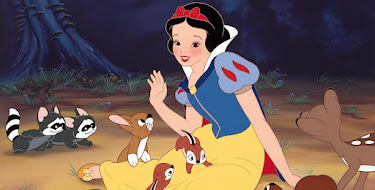When Walt Disney released Snow White and the Seven Dwarfs in 1937, it became a groundbreaking achievement in animation and storytelling. At the heart of the film is Snow White herself, a character whose defining trait is her kindness. Throughout the movie, this quality not only shapes her journey but also influences those around her—both friend and foe.
From the very beginning, Snow White’s kindness protects her. When the Evil Queen orders the Huntsman to take her into the woods and kill her, he cannot bring himself to do it. Despite his loyalty to the Queen, he is moved by Snow White’s innocence and gentle nature, choosing instead to let her escape. This moment highlights how her goodness touches even those given cruel tasks.
After fleeing into the forest, Snow White stumbles upon the home of the seven dwarfs. Rather than taking their hospitality for granted, she offers to stay and help them by cooking and cleaning. The dwarfs, initially hesitant about letting her stay, are won over by her warmth and willingness to contribute. This exchange reinforces the idea that kindness fosters trust and friendship, even among those who are vastly different from us.
However, Snow White’s kindness also makes her a target. The Queen despises her not just for her beauty but because Snow White’s inner goodness makes her the fairest of them all. This envy drives the Queen to drastic actions, proving that in a world of selfish ambition, true beauty is found in a kind and gentle heart. Snow White’s purity remains unshaken despite the dangers she faces, making her one of Disney’s most beloved characters.
In contrast, the live-action adaptation, as seen in the trailer, seems to take a different approach to Snow White’s character. While it is stated that she is kind, her actions suggest otherwise. Instead of relying on her kindness to shape her destiny, she is portrayed as a warrior leading an army to reclaim the kingdom. This shift in characterization moves away from the original message that kindness, not force, is the key to changing the world. While strength and courage are admirable qualities, the essence of Snow White’s character has always been that her goodness transforms those around her.
Art by Vivian Hsia
The lesson we can take from Snow White and the Seven Dwarfs is that kindness should be at the core of how we interact with others. In today’s world, it is easy to let differences divide us—be it political views, cultural backgrounds, or personal beliefs. However, Snow White’s story reminds us that kindness transcends those barriers. Whether it was the Huntsman sparing her life, the dwarfs welcoming her into their home, or even how she lovingly cared for animals, Snow White demonstrated that being good to others can create harmony even in a world filled with challenges.
President Russell M. Nelson, in his talk Peacemakers Needed, spoke about the necessity of being kind and fostering peace in an increasingly divided world. He reminded us that “contention drives away the Spirit—every time” and that we must strive to be peacemakers rather than participants in conflict. Snow White embodied this principle, choosing kindness over retaliation even when faced with hatred from the Queen. Similarly, we can strive to be peacemakers in our own lives, treating others with kindness regardless of their beliefs, actions, or backgrounds.
Ultimately, Snow White and the Seven Dwarfs teaches us that kindness is not a weakness—it is a powerful force that can shape lives, soften hearts, and bring people together. As we go about our daily lives, we should remember Snow White’s example and choose to be kind, even when the world around us seems harsh. Just as she won the hearts of the Huntsman and the dwarfs, we too can inspire change through simple acts of goodness. As President Nelson urged, let us be the peacemakers the world so desperately needs.








No comments:
Post a Comment